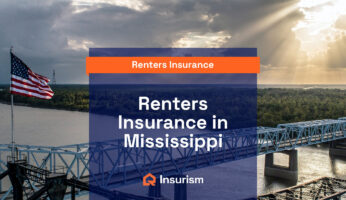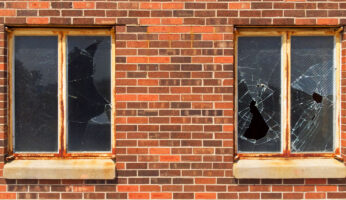Table of Contents
When is mold covered by renters insurance?
Mold growth is covered by renters insurance when it can be traced back to a covered peril.
Insurance providers don’t consider mold itself to be a peril because it doesn’t grow without help. Mold grows due to excessive moisture, which in turn can usually be traced back to something else, like a leak, a sewage backup, or a flood.
If the mold’s root cause was a covered peril, the mold itself will also be covered.
Common covered perils
Most commonplace perils that cause mold are covered by renters insurance:
- Malfunctioning appliances, like refrigerators and washing machines, are covered. So are the components of your HVAC system, such as AC units, radiators, and dehumidifiers.
- Burst pipes are almost always covered.
- So are frozen pipes and other kinds of snow and ice damage. If there’s a blizzard and the weight of the snow causes part of your roof to collapse, any mold that grows will be covered.
- Leaks are covered — when they’re caused by another covered peril like hail or wind. However, leaks caused by ordinary wear and tear (such as corroded metal or decaying wood) are your landlord’s responsibility. Renters insurance won’t cover any mold that grows due to those leaks, but your landlord’s insurance policy probably will.
Other covered perils
Renters insurance also covers more extreme perils like fire, explosions and vandalism.
Most of the time, those won’t lead to mold growth — but let’s say there’s a gas explosion in your apartment. If the explosion cracks your ceiling, which lets in moisture and causes mold to grow, your renters insurance policy will cover it.
Does renters insurance cover black mold and mildew?
Renters insurance covers every kind of mold, including black mold and mildew. Ordinary household mold and other fungal infestations are also equally covered.
When isn’t mold covered by renters insurance?
Mold isn’t covered by renters insurance when it was caused by an excluded peril or by your own negligence.
Some renter insurance policies also have special provisions written in that specifically exclude mold and fungal infestations from coverage.
Commonly excluded perils
- Floods: If your home is hit by an external flood — for instance, one caused by a storm, melting snow, or a burst dam — any mold that grows as a consequence won’t be covered by renters insurance.
- Backed-up drains and sewers: Drain and sewer backups and sump pump failures usually aren’t covered by renters insurance. However, most providers offer riders to cover them.
- Structural deficiencies: If the building you’re living in is damaged or deficient in a way that causes mold to grow (e.g. if one of your windows won’t close), that’s your landlord’s responsibility. Your renters insurance policy won’t cover it, but your landlord should.
- Large-scale mold problems: Similarly, if your entire building has a mold problem and it spreads through the walls or ducts to your unit, your renters insurance policy won’t cover it. However, it’s your landlord’s responsibility to fix it, and their insurance policy will compensate you for your ruined property.
Negligence
If you could have prevented mold from growing but neglected to do so, it also probably won’t be covered by renters insurance, even if it was caused by a covered peril.
For example, if a pipe bursts and you never bothered to wipe up the water, your provider won’t cover the mold that grows as a result. Your provider also won’t cover it if there was mold growing out in the open and you overlooked or ignored it.
However, if most of the mold growth happened out of sight (for instance, if it was covered by a piece of furniture), you couldn’t have reasonably been expected to notice it, and your provider will cover it.
Special limits and exclusions
Some insurance carriers write provisions into their renters insurance policies that limit the amount they’ll pay for mold damage (for example, by specifying a maximum payout of $5,000). In extreme cases, providers will decline to cover mold damage under any circumstances, but this is relatively rare.
The only way to know whether your policy features a limit like this is to read it, or to phone your insurer and ask.
Related Questions
- What is guest medical coverage in renters insurance?
- What is a sub-limit in renters insurance?
- Does renters insurance cover home-based businesses?
- Does renters insurance cover gold or silver bullion?
- What does "dependent in the care of" mean in renters insurance?
- Does State Farm renters insurance cover hotel stays?






